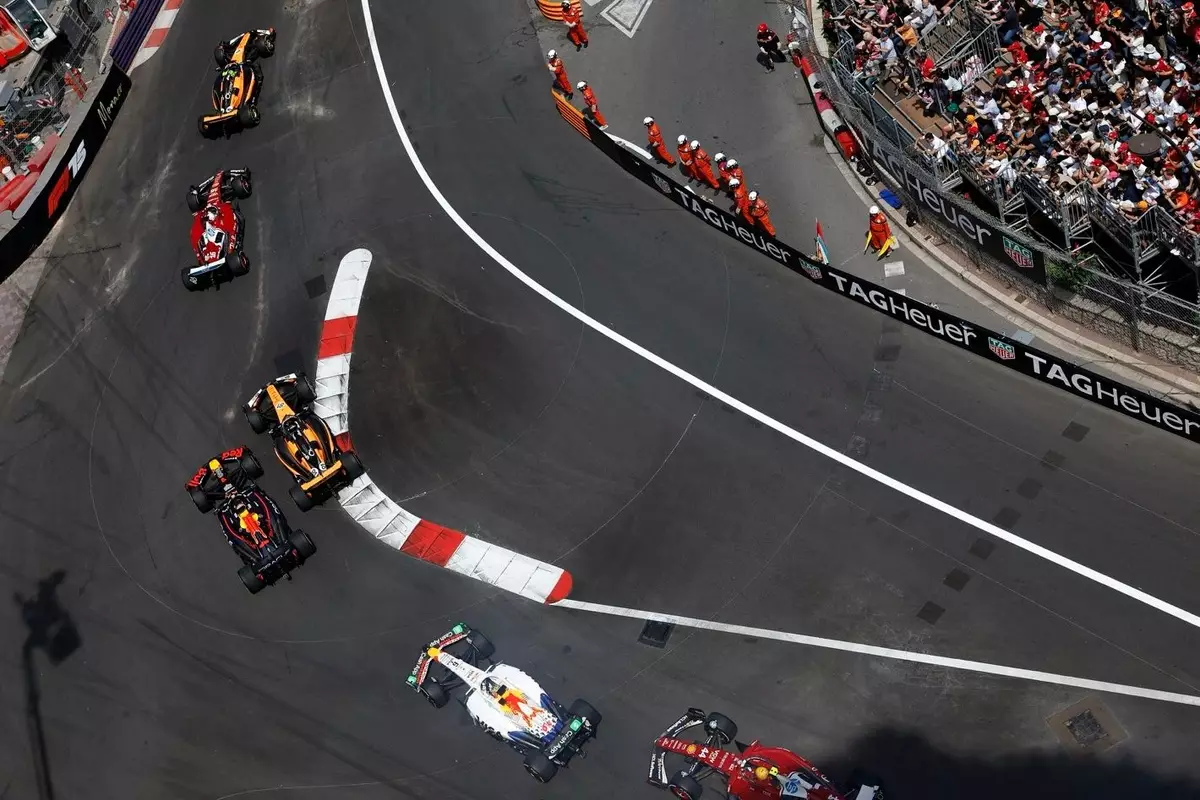The Monaco Grand Prix, an iconic event steeped in history and glamour, has long been criticized for its monotonous racing dynamics. As we edge toward the race’s centennial celebration, something feels amiss. Over the years, Formula 1 has struggled to blend its storied past with the contemporary demand for thrilling competition. George Russell, a prominent voice in the paddock, has suggested that the racing format in Monaco needs a complete overhaul following a disappointing recent experiment with tire strategies. His perspective offers a vital starting point for considering how we can revitalize what has become a predictable race.
In recent years, fans and drivers alike have expressed a growing frustration with the procession-style races that characterize Monaco. The idyllic location and high-stakes glamour seem overshadowed by the inability of cars to effectively overtake, creating a stale viewing experience. Despite the allure of the Principality, it is becoming increasingly evident that an evolution in race format is necessary to reignite excitement for both competitors and spectators.
The Experiment: Failure to Live Up to Expectations
The experimental rule change introduced for the latest race aimed to break the monotony by mandating the use of three tire sets, effectively requiring drivers to execute at least two pit stops over the race’s 78 laps. However, this strategy did little to disrupt the natural order. The top qualifiers finished in their qualifying positions, with minor fluctuations due to deliberate tactics employed by teams like Williams and Red Bull. Russell’s frustration embodies the sentiment that attempts to innovate within an entrenched format have fallen flat.
The specter of such tactics — drivers deliberately slowing down to create advantageous gaps for teammates — undermines the sport’s integrity and competitive spirit. Russell’s decision to bypass part of the track to regain some semblance of racing excitement highlighted the dire situation. Instead of exemplifying skill, drives seemed dictated more by team strategy than individual performance, robbing fans of genuine competition.
Reimagining the Format: The Case for a Two-Race Weekend
In his post-race comments, Russell did not shy away from suggesting a radical change: what if Monaco adopted a two-race weekend format? He proposed that drivers could earn points through two qualifying sessions—one on Saturday and one on Sunday—with prizes awarded for pole positions in both. The thought of racing enthusiasts engaging in a format where the excitement of qualifying translated into an overt race dynamic is alluring.
Such changes could reestablish the essence of what makes motorsport so thrilling: the unpredictability of racing. By transforming the weekend into one where qualifying performs double duty, teams must strategize around two potential race outcomes. This shift could amplify engagement, offering more opportunities for both lead changes and dramatic moments—elements often missing from the current state of Monaco racing.
Finding the Balance: Tradition Meets Innovation
Russell’s candid remarks call for a balancing act between honoring Monaco’s heritage and innovating to meet modern expectations. Let’s not forget, this is a venue steeped in history, but nostalgia shouldn’t act as a barrier to progress. Reducing dependency on old mechanisms—such as the current layout and operational formats—could pave the way for a fresh narrative in F1. Seeking inspiration from other motorsport disciplines might yield creative solutions to offer more competitive and entertaining racing.
Furthermore, the suggestion that F1 could consider incorporating more unpredictable elements, such as random grid placements or conditions affecting tire performance, could foster a more dynamic racing atmosphere. Imagine a scenario where weather changes could affect tire choices or introduce new pit strategies. In an era increasingly governed by unpredictability, embracing such variations may hold the key to revamping the spectacle.
Russell’s passionate critique of the status quo and advocacy for innovation reverberate far beyond his own experience during the Monaco Grand Prix. His desire to transform a stagnant race format into one that respects tradition while breathing new life into the spirit of competition taps into a broader conversation about the future of Formula 1. The time may have come to let go of the comfort of tradition and embrace the thrilling uncertainties that lay ahead.


Leave a Reply